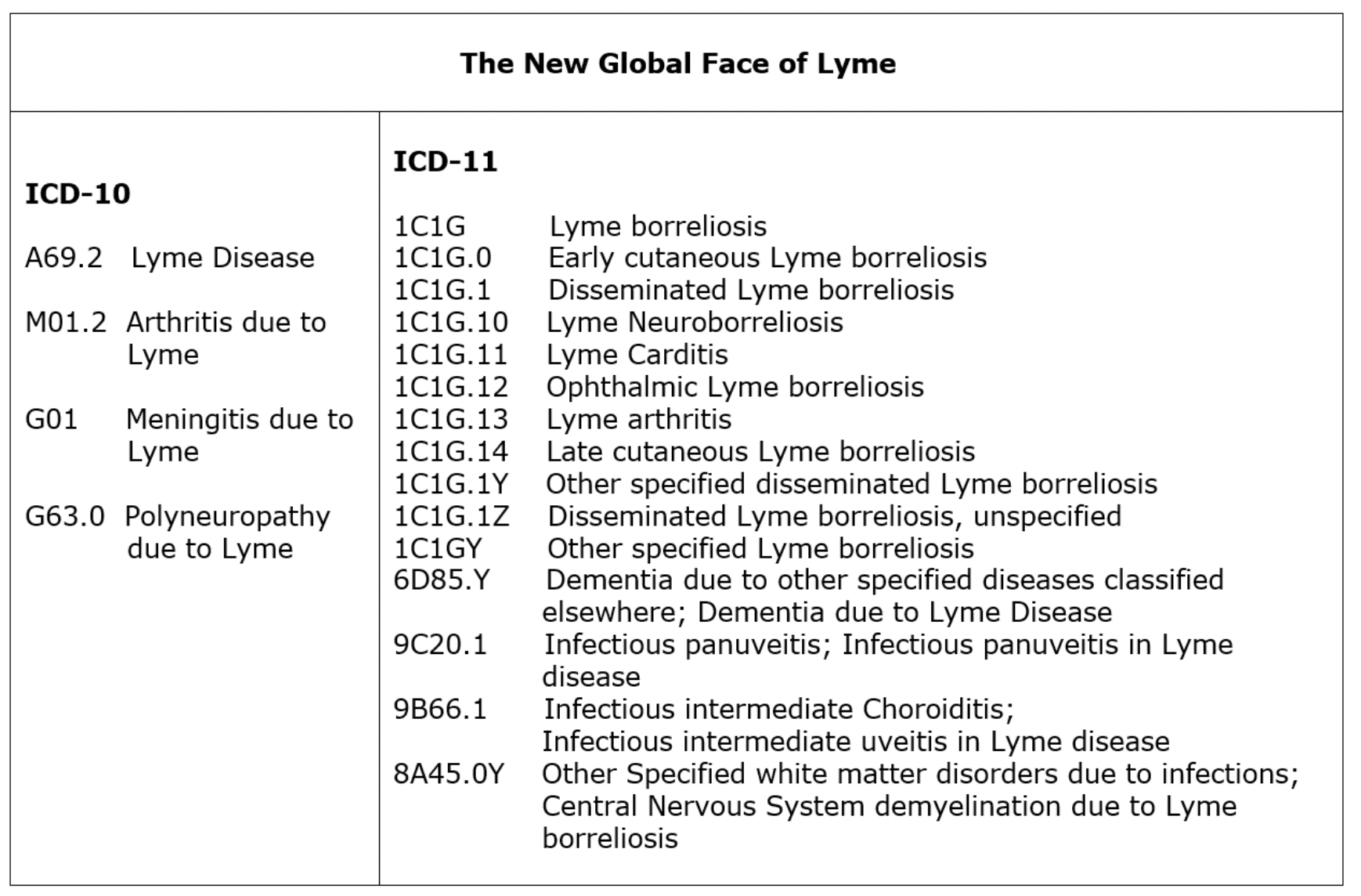
An update for patients and practitioners regarding the new LYME ICD11 codes
It has been twenty-five years since the World Health Organization (WHO) has updated the International Classification of Diseases (ICD) codes for Lyme disease. The ICD-11 codes, including those for Lyme disease, took effect January 1, 2022.
Patients should know that the creation of new diagnosis codes for an illness does not automatically guarantee coverage of care. The complex US healthcare system is known to take time to adopt to new ICD editions. However, the timing issue is less relevant than the opportunity that the ICD-11 codes provide for patients to negotiate for coverage today, particularly with health insurance policies that align with the Affordable Care Act.
The validation by the WHO of the debilitating and potentially fatal complications of Lyme disease provides patients with a legitimate opportunity to access extended treatment and coverage of care under insurance. The ICD-11 codes will help increase the awareness of Lyme complications, tighten infection surveillance, and should strengthen reporting by public health authorities.
The codes were crafted over several years as 194 WHO members utilized an in-depth scientific review progress to reach a consensus. While previously the codes were limited, they now acknowledge the many difficulties that accompany a Lyme infection, including congenital infections. Here are the codes below:

Sources:
https://docs.google.com/document/d/1bi_bA6ZLjqeXGb4oK7yYy80PEfrNFes3tvW15Ek8lIc/edit
https://docs.google.com/document/d/1bi_bA6ZLjqeXGb4oK7yYy80PEfrNFes3tvW15Ek8lIc/edit




-2.jpg)


